11 Feb2021
By Terrance McNeil
The members of AACTE’s HBCU Teacher Education Topical Action Group (TAG) are very proud of the contributions of Historically Black Colleges and Universities’ (HBCU) educators and researchers and the work that they have done within and beyond academia. More importantly, we commend the contributions made through the discourse and praxis on equity in education. We want to celebrate these contributions and promote the excellence that emanates from HBCU educator preparation programs. We look forward to your participation at our annual business virtual meeting on February 23, 2021 from 4:00 to 6:00 pm.
In keeping with this year’s theme, Resisting Hate, Restoring Hope: Engaging in Courageous Action, The HBCU Teacher Education TAG will engage in a discussion on how we are instrumental in this purpose by using our unique positionally to provide leadership on issues of diversity and inclusion. We hope you will consider joining us.
05 Feb2021
By Jacqueline Rodriguez

Educator preparation programs have experienced a tumult of change in the last 12 months. Many of our members have experienced decreased enrollment in initial licensure teacher education programs, all during a nationwide teacher shortage. Now, more than ever before, it is our responsibility to consider what may be creating barriers for candidates to enter our programs and our profession. AACTE plans to support member institutions’ examination of assessments used for entry into preparation programs and the barriers they create for potential candidates, especially candidates of color.
02 Feb2021
By Michael W. Apple

During the virtual AACTE 2021 Annual Meeting, attendees are invited to join their peers at the Learning Lab session, Disrupting Inequities: Local and Global initiatives for Shared Responsibility in Diversity, Equity, and Social Justice on Friday, February 26, 10:00 – 11:00 a.m. AACTE member
Michael W. Apple of the University of Wisconsin addresses this topic in the following thought leadership article.
Schools, particularly public schools, are under a great threat right now. And as education leaders, it’s imperative that we understand the current environment. There is a growing anger towards our educational system that is visible statewide and at a national level. Fueled by restorative politics, many of those who have lost their faith in public schools believe that educators place too much emphasis on equitable education. Yet, while much more needs to be done, the simple fact that some people are criticizing schools must mean that we must be doing something right already. If we weren’t working at interrupting racial injustice many people, especially those who are ultra-rightists, wouldn’t be so angry at schools and teachers.
29 Jan2021
By Bianca Nightengale-Lee
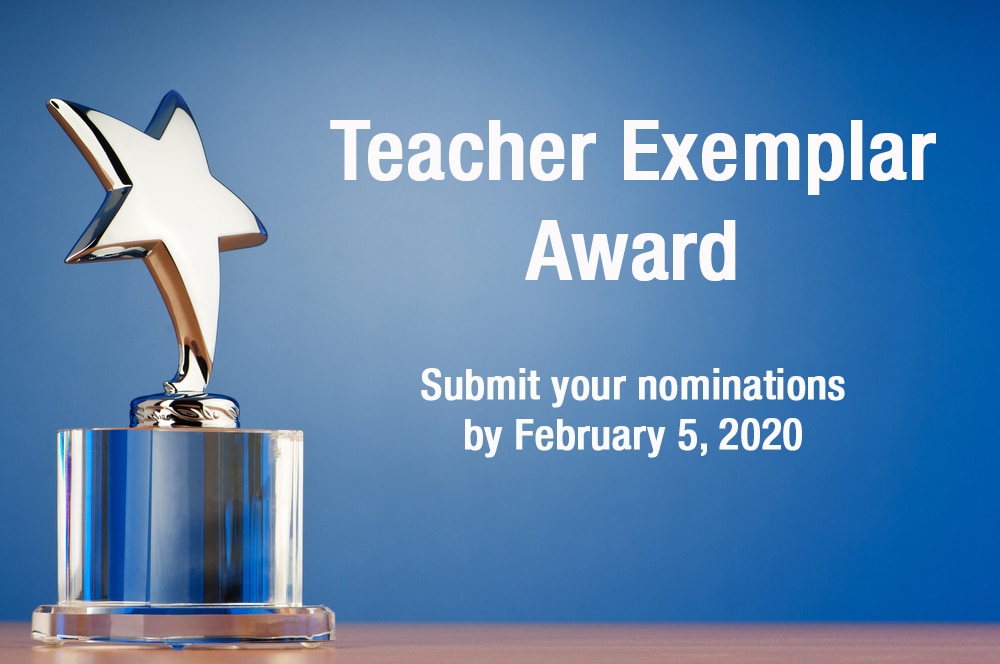
The Teacher Exemplar Award is presented by the AACTE Diversified Teacher Workforce (DTW) Topical Action Group (TAG) to recognize exceptional student/clinical teachers of Color and PK-12 mentor/cooperating teachers who serve as mentors to student/clinical teachers in field experiences. The instructional pedagogies and practices embodied by the recipients of this award reflects the DTW TAG mission and goals and advances our current understanding of the importance of cultivating a diversified teaching workforce that enhances educational opportunities for ethnically, culturally, and linguistically diverse students.
Recipients of these awards have demonstrated effective instructional/pedagogical practices, advocacy skills, and a service-minded disposition toward addressing inequities through their teaching, participation in local community, school, and/or grassroots service efforts. In recognition and honor of this important work, the recipients will receive a $500 honorarium each and be recognized in our 2021 DTW Virtual Institute. Also, the recipients will be asked to participate on the planning committee of the 2022 DTW Institute.
25 Jan2021
By Weade James
 AACTE is pleased to announce the Call for Applications for the Consortium for Research-Based and Equitable Assessments (CREA). Funded by the Bill and Melinda Gates Foundation, the purpose of the Consortium is to convene stakeholders across various states to (1) examine how cut scores for entrance into educator preparation programs are currently set, (2) identify guidelines and recommendations for setting equitable cut scores for Praxis I and similar assessments, and (3) develop model state policies that seek to attract and prepare diverse teacher candidates for the profession.
AACTE is pleased to announce the Call for Applications for the Consortium for Research-Based and Equitable Assessments (CREA). Funded by the Bill and Melinda Gates Foundation, the purpose of the Consortium is to convene stakeholders across various states to (1) examine how cut scores for entrance into educator preparation programs are currently set, (2) identify guidelines and recommendations for setting equitable cut scores for Praxis I and similar assessments, and (3) develop model state policies that seek to attract and prepare diverse teacher candidates for the profession.
The Consortium of state teams shall be comprised of educator preparation programs and representatives from state and local education agencies. Participants must commit to one full year of participation, which will include quarterly meetings and pre-work between meetings to accomplish the goals of the Consortium.
19 Jan2021
By Maria Hyler
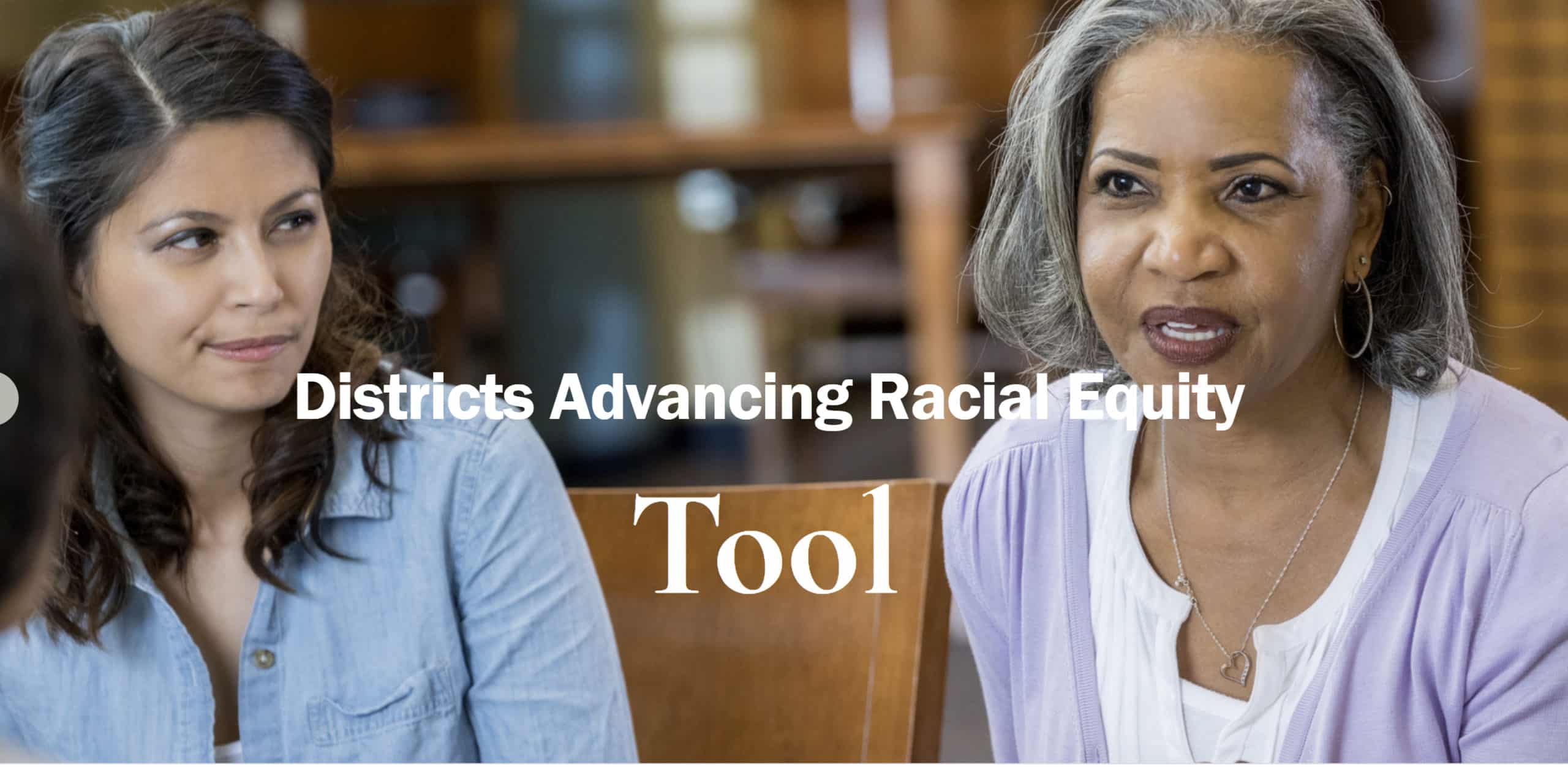
This article originally appeared on the Learning Policy Institute website an is reprinted with permission. The article was written by Maria E. Hyler, Desiree Carver-Thomas, Marjorie Wechsler, and Larkin Willis.
Decades of reforms have proven insufficient to address persistent racial disparities in educational opportunities. In school systems across the United States, meaningful efforts to ensure access to strong educational opportunities require a bold and significant shift. Policies and practice must not only prevent discrimination; they must move beyond simple notions of equality—in which every student gets the same—to equity—in which all students get what they need to develop academically, socially, emotionally, and physically.
School leaders who have been committed to racial equity understand the historical legacy of structural racism that reaches to our present context and that results in the educational opportunity gaps that students still experience. District staff who have focused on racial equity recognize that students’ individualized experiences, opportunities, and successes in school are deeply contextualized in the social reality of institutionalized racism across the United States. They seek to educate the individuals and ameliorate the systems that perpetuate inequitable opportunities and resulting outcomes for students.
14 Jan2021
By Nicole Dunn
 In this new year, AACTE is recommitting its efforts to support the field in combating the racism that permeates throughout our education system. As a part of these efforts, AACTE will host a webinar each month that is centered on naming, learning, addressing, reforming, and promoting antiracist culture and policies throughout the education system. During these one-hour virtual sessions, you will hear from members and leaders in the field who have been doing the research and work to ensure PK-12 students receive a truly inclusive education. Our goal is for all participants, whether you are an administrator, faculty member, candidate, or current practitioner, to walk away with actionable steps to address internal, interpersonal, and systemic racism.
In this new year, AACTE is recommitting its efforts to support the field in combating the racism that permeates throughout our education system. As a part of these efforts, AACTE will host a webinar each month that is centered on naming, learning, addressing, reforming, and promoting antiracist culture and policies throughout the education system. During these one-hour virtual sessions, you will hear from members and leaders in the field who have been doing the research and work to ensure PK-12 students receive a truly inclusive education. Our goal is for all participants, whether you are an administrator, faculty member, candidate, or current practitioner, to walk away with actionable steps to address internal, interpersonal, and systemic racism.
Racism is a broad and entrenched system of discrimination that has been largely ignored in our history, and every individual in our education system has a part to play in correcting it. Therefore, to begin this series, we want to focus on Discussing Race in Classrooms. In addition to learning how to prepare candidates to discuss racism in PK-12 classrooms, the webinar will address how educator preparation programs and other education field leaders can do the internal, interpersonal, and system-wide work to effectively support and prepare candidates to do so within those programs.
Register Today to join AACTE and the esteemed panel for or its first webinar: Discussing Race in PK-12 Classrooms, Why it’s an Essential Skill, on January 25, 2:00 p.m. EST. We exist in a world of relationships, and therefore, it is imperative that we examine our country’s and our education system’s historic relationship with racism and students of color before we endeavor to implement antiracist policies in our programs. In this session, we will take a look back at the central historic systemic inequities that have created an environment in which a majority of educators are ill-prepared and unwilling to name and discuss race and racism in classrooms. From that historical perspective, we will look at its effects on discipline and special education systems, both of which maintain systemic inequities and exacerbate racial discrimination for students with intersectional identities.
Register for Discussing Race in PK-12 Classrooms, Why It’s an Essential Skill
05 Jan2021
By Marvin Lynn
T his article originally appeared in Diverse Issues in Higher Education and is reprinted with permission.
his article originally appeared in Diverse Issues in Higher Education and is reprinted with permission.
As we embark upon a new year, it is important for education leaders to reflect on 2020 in order to assess what we got right, determine what went wrong, and then set a course for a more equitable education for all students in 2021.
The COVID-19 pandemic illuminated the multiple and complex inequalities that exist in our schools. In remote learning environments, students who were already disengaged from school, in some cases, became more detached and harder to reach, particularly the population of historically underserved and marginalized PK-12 students. Undergraduate programs in higher education experienced similar issues, as some students felt more marginalized and isolated due to not being in classrooms. The pandemic has taught us that educator preparation programs must instill in teacher candidates the importance of building relationships. If educators don’t develop healthy and sound relationships based upon mutual trust with their students, then it’s harder to teach—and definitely harder to reach—those students for whom school is not a positive experience.
05 Jan2021
By AACTE
AACTE has launched a new initiative to examine state-level teacher certification assessment scores, with the goal to improve equitable and inclusive practices for promoting a diverse educator workforce. The initiative, funded by the Bill & Melinda Gates Foundation, will enable AACTE to develop national guidelines and recommendations for state education leaders in establishing criteria for equitable evaluations for teacher candidates seeking state licensure.
“Left uninterrogated, standardized tests of any sort tend to spur inequalities, rather than resolve them,” said Leslie T. Fenwick, AACTE dean in residence. “If entrance exams are decimating the ranks of prospective pre-service teachers of color, we have a moral and practical obligation to correct the outsized impact of these tests on the future of our profession.”
17 Dec2020
Increase Focus on Technology and Commitment to Equity and Diversity
By Matt Vanover
 The Council for the Accreditation of Educator Preparation (CAEP) Board of Directors has approved changes to the 2013 CAEP Standards for educator preparation. The CAEP Standards guide the nation’s top schools of education, those that are CAEP accredited, in preparing future K-12 teachers. The changes the Board approved include streamlining language, strengthening emphasis on technology, equity, and diversity. The revised standards are in effect for providers with visits in spring 2022.
The Council for the Accreditation of Educator Preparation (CAEP) Board of Directors has approved changes to the 2013 CAEP Standards for educator preparation. The CAEP Standards guide the nation’s top schools of education, those that are CAEP accredited, in preparing future K-12 teachers. The changes the Board approved include streamlining language, strengthening emphasis on technology, equity, and diversity. The revised standards are in effect for providers with visits in spring 2022.
“The changes to the standards maintain our commitment to continuous improvement for our organization and our providers. The CAEP Standards were developed in 2013 to unify the profession under a single set of standards, with a commitment to ensure they remain rigorous. The enhancement to the standards is based on research to ensure rigor and relevance,” said CAEP President Christopher A. Koch. “CAEP providers are committed to preparing graduates that are ready to teach all students on the first day they enter a classroom.”
14 Dec2020
By Pamela Carroll

Did you know that over 1,000 traditionally underrepresented doctoral students have benefitted from the AACTE Holmes Scholars Program? Through networking, collaboration, mentoring, leadership opportunities, and research activities, the program provides high-achieving minority students with rich professional development. In fact, you probably know a former scholar, as many are now in tenured faculty and leadership positions at institutions across the United States.
Educator preparation programs (EPPs) are keenly focused on developing strategies to advance the field of education, close the equity gap, and make a more diverse teacher workforce a reality, and the Holmes Scholar Program is an essential component to achieving those goals. To promote diversity of the education profession and to prepare educators who can serve diverse learners, the program provides EEPs with the opportunity to attract students from historically underrepresented communities, increase the retention and graduation rates of doctoral students of color, and strengthen the institution’s role as a leader in supporting diversity.
08 Dec2020
By Nicole Dunn
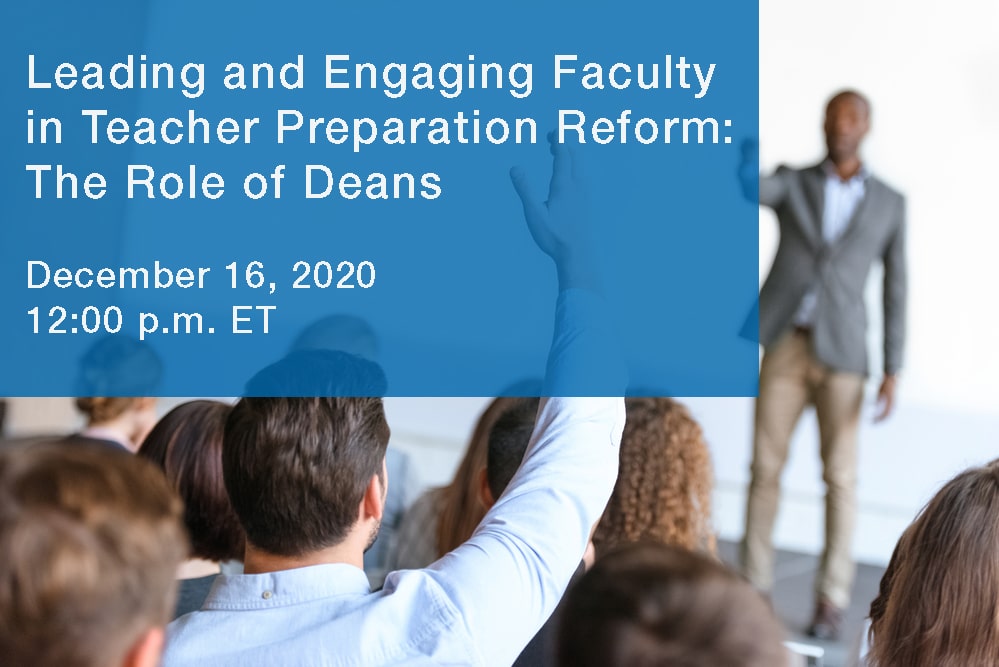
AACTE and CEEDAR (Collaboration for Effective Educator Development, Accountability, and Reform) Center are partnering together to present a webinar centered on a special issue brief, Leading and Engaging Faculty in Teacher Preparation Reform: The Role of Deans. The issue brief summarizes the experiences in leadership of six current and former deans who have been identified as engaging in successful collaborative reform efforts within their colleges.
During the one-hour event, Mary Brownwell will talk with Marquita Grenot-Scheyer and Kandi Hill-Clarke about the issue brief and their experiences of cultivating collaboration and supporting innovation among general and special education faculty who share responsibility to support students in diverse and inclusive classrooms. Since few resources exist to support deans in their efforts to work with faculty to engage in this work, AACTE and CEEDAR believe the experiences of these leaders will be useful to other deans as they work toward similar outcomes.
Register for the webinar, which will take place December 16 from 12:00 – 1:00 p.m. (ET). Learn more about the panelists:
08 Dec2020
By Jacqueline Rodriguez, Jane E. West, Jacqueline E. King, Ph.D. and Ward Cummings
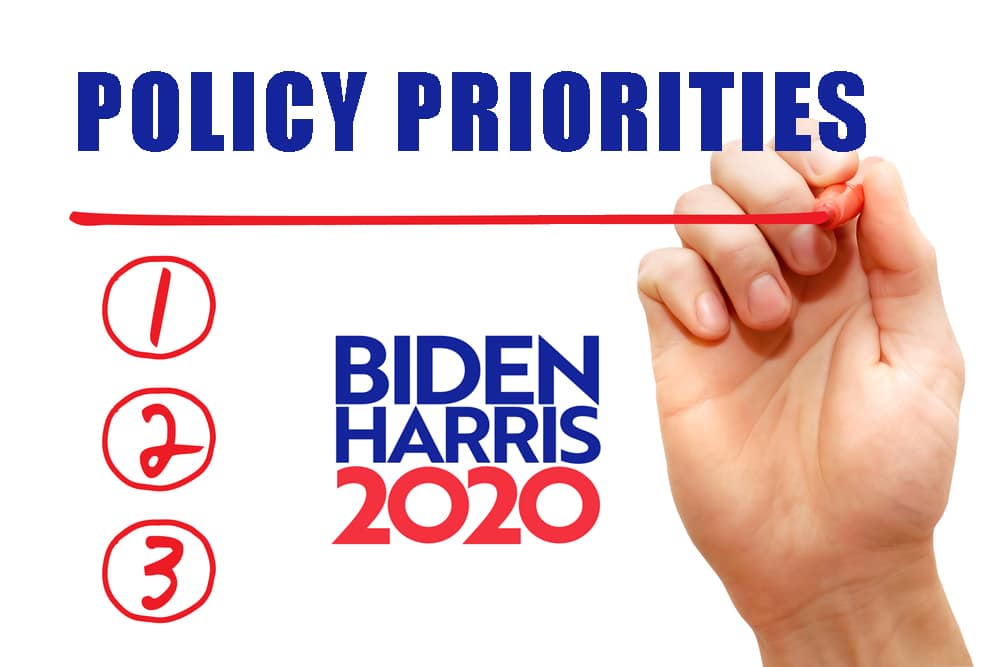 The nation’s transition to the 46th presidential administration are underway. AACTE provided the Biden-Harris Administration’s Education Transition Team with its policy priorities for the coming year. Much of AACTE’s priorities stem from its advocacy throughout the year to increase the federal investment in education in PK-20, with a specific focus on recruiting and sustaining candidates in its education preparation programs.
The nation’s transition to the 46th presidential administration are underway. AACTE provided the Biden-Harris Administration’s Education Transition Team with its policy priorities for the coming year. Much of AACTE’s priorities stem from its advocacy throughout the year to increase the federal investment in education in PK-20, with a specific focus on recruiting and sustaining candidates in its education preparation programs.
As a result of the COVID-19 pandemic, educator preparation stands at a dangerous crossroad. The college and university programs that prepare our teachers, principals, school counselors, and other essential education professionals are experiencing a debilitating wave of closures and faculty layoffs.
08 Dec2020
By JTE Insider
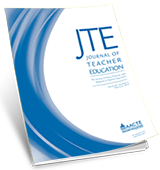 Check out a recent JTE Insider podcast by the Journal of Teacher Education (JTE) editorial team. This blog is available to the public, and AACTE members have free access to the articles in the JTE online archives—just log in with your AACTE profile.
Check out a recent JTE Insider podcast by the Journal of Teacher Education (JTE) editorial team. This blog is available to the public, and AACTE members have free access to the articles in the JTE online archives—just log in with your AACTE profile.
This podcast interview features insights from the article, “Preparing Teachers to Notice Race in Classrooms: Contextualizing the Competencies of Preservice Teachers With Antiracist Inclinations,” by Niral Shah and Justin A. Coles. The article is published in the November/December 2020 issue of the Journal of Teacher Education.
Article Abstract: Race-focused teacher education has centered on changing preservice teachers’ racial beliefs and attitudes. In this article, we build on this work by exploring how preservice teachers identify and address issues of race and racism in the everyday work of teaching and learning. To conceptualize these processes, we propose the theoretical framework of “racial noticing,” which extends the literature on teacher noticing to the consideration of racial phenomena. Using a comparative case study design, this study focuses on three elementary preservice teachers (two identifying as White, one identifying as Black) with antiracist inclinations. Findings show that they demonstrated generally strong competencies with racial noticing during a mathematics methods course, but that contextual factors influenced shifts in racial noticing during student teaching. We argue that race-focused teacher education centered on noticing the impact of race and racism in learning settings can make the practice of antiracist teaching more tractable for preservice teachers.
Listen Now.
04 Dec2020
By Jacob Easley II
This article originally appeared in Diverse Issues in Higher Education and is reprinted with permission.
 The 1787 U.S. Constitution was ratified to establish justice, liberty, and prosperity, but not for all Americans. Like the Constitution, early American educational practices were based on a system of whiteness and elitism. Justice and prosperity for those who comprise marginalized groups have remained largely unfulfilled. We know for certain that we are a pluralistic society. No one group has singularly built this nation, secured its borders, nor defended its values. The plurality of our nation is our strength. As educators, particularly who prepare America’s future teachers, we must double down, now more than ever, on what Horace Mann said, “Education, beyond all other devices of human origin, is the great equalizer of the conditions of men, the balance wheel of the social machinery.”
The 1787 U.S. Constitution was ratified to establish justice, liberty, and prosperity, but not for all Americans. Like the Constitution, early American educational practices were based on a system of whiteness and elitism. Justice and prosperity for those who comprise marginalized groups have remained largely unfulfilled. We know for certain that we are a pluralistic society. No one group has singularly built this nation, secured its borders, nor defended its values. The plurality of our nation is our strength. As educators, particularly who prepare America’s future teachers, we must double down, now more than ever, on what Horace Mann said, “Education, beyond all other devices of human origin, is the great equalizer of the conditions of men, the balance wheel of the social machinery.”
America has yet to become an equal society, and these societal ills create the need for scholar activism embedded in Critical Race Theory (CRT), which historically documents and names the atrocities carried out in this country in the name of freedom, liberty, and democracy. America’s struggle to uphold the Constitution for all its citizens makes it necessary to examine the structural oppression that encumbers the United State from fully living up to its democratic ideals. Through CRT, scholars across higher education have researched racial inequality that emerged from the social, economic, and legal differences created between races to maintain elite, white interests in this country. If our national laws and practices are to ensure justice and equity, then educators have a great deal of work to do in ensuring the American ideals we teach youth to value in school are a reality for all.










 AACTE is pleased to announce the Call for Applications for the Consortium for Research-Based and Equitable Assessments (CREA). Funded by the Bill and Melinda Gates Foundation, the purpose of the Consortium is to convene stakeholders across various states to (1) examine how cut scores for entrance into educator preparation programs are currently set, (2) identify guidelines and recommendations for setting equitable cut scores for Praxis I and similar assessments, and (3) develop model state policies that seek to attract and prepare diverse teacher candidates for the profession.
AACTE is pleased to announce the Call for Applications for the Consortium for Research-Based and Equitable Assessments (CREA). Funded by the Bill and Melinda Gates Foundation, the purpose of the Consortium is to convene stakeholders across various states to (1) examine how cut scores for entrance into educator preparation programs are currently set, (2) identify guidelines and recommendations for setting equitable cut scores for Praxis I and similar assessments, and (3) develop model state policies that seek to attract and prepare diverse teacher candidates for the profession. 
 In this new year, AACTE is recommitting its efforts to support the field in combating the racism that permeates throughout our education system. As a part of these efforts, AACTE will host a webinar each month that is centered on naming, learning, addressing, reforming, and promoting antiracist culture and policies throughout the education system. During these one-hour virtual sessions, you will hear from members and leaders in the field who have been doing the research and work to ensure PK-12 students receive a truly inclusive education. Our goal is for all participants, whether you are an administrator, faculty member, candidate, or current practitioner, to walk away with actionable steps to address internal, interpersonal, and systemic racism.
In this new year, AACTE is recommitting its efforts to support the field in combating the racism that permeates throughout our education system. As a part of these efforts, AACTE will host a webinar each month that is centered on naming, learning, addressing, reforming, and promoting antiracist culture and policies throughout the education system. During these one-hour virtual sessions, you will hear from members and leaders in the field who have been doing the research and work to ensure PK-12 students receive a truly inclusive education. Our goal is for all participants, whether you are an administrator, faculty member, candidate, or current practitioner, to walk away with actionable steps to address internal, interpersonal, and systemic racism. his article originally appeared in
his article originally appeared in  The Council for the Accreditation of Educator Preparation (CAEP) Board of Directors has approved changes to the 2013 CAEP Standards for educator preparation. The CAEP Standards guide the nation’s top schools of education, those that are CAEP accredited, in preparing future K-12 teachers. The changes the Board approved include streamlining language, strengthening emphasis on technology, equity, and diversity. The revised standards are in effect for providers with visits in spring 2022.
The Council for the Accreditation of Educator Preparation (CAEP) Board of Directors has approved changes to the 2013 CAEP Standards for educator preparation. The CAEP Standards guide the nation’s top schools of education, those that are CAEP accredited, in preparing future K-12 teachers. The changes the Board approved include streamlining language, strengthening emphasis on technology, equity, and diversity. The revised standards are in effect for providers with visits in spring 2022. 

 The nation’s transition to the 46th presidential administration are underway. AACTE provided the Biden-Harris Administration’s Education Transition Team with its policy priorities for the coming year. Much of AACTE’s priorities stem from its advocacy throughout the year to increase the federal investment in education in PK-20, with a specific focus on recruiting and sustaining candidates in its education preparation programs.
The nation’s transition to the 46th presidential administration are underway. AACTE provided the Biden-Harris Administration’s Education Transition Team with its policy priorities for the coming year. Much of AACTE’s priorities stem from its advocacy throughout the year to increase the federal investment in education in PK-20, with a specific focus on recruiting and sustaining candidates in its education preparation programs. Check out a recent JTE Insider podcast by the Journal of Teacher Education (JTE) editorial team. This blog is available to the public, and AACTE members have free access to the articles in the JTE online archives—just
Check out a recent JTE Insider podcast by the Journal of Teacher Education (JTE) editorial team. This blog is available to the public, and AACTE members have free access to the articles in the JTE online archives—just  The 1787 U.S. Constitution was ratified to establish justice, liberty, and prosperity, but not for all Americans. Like the Constitution, early American educational practices were based on a system of whiteness and elitism. Justice and prosperity for those who comprise marginalized groups have remained largely unfulfilled. We know for certain that we are a pluralistic society. No one group has singularly built this nation, secured its borders, nor defended its values. The plurality of our nation is our strength. As educators, particularly who prepare America’s future teachers, we must double down, now more than ever, on what Horace Mann said, “Education, beyond all other devices of human origin, is the great equalizer of the conditions of men, the balance wheel of the social machinery.”
The 1787 U.S. Constitution was ratified to establish justice, liberty, and prosperity, but not for all Americans. Like the Constitution, early American educational practices were based on a system of whiteness and elitism. Justice and prosperity for those who comprise marginalized groups have remained largely unfulfilled. We know for certain that we are a pluralistic society. No one group has singularly built this nation, secured its borders, nor defended its values. The plurality of our nation is our strength. As educators, particularly who prepare America’s future teachers, we must double down, now more than ever, on what Horace Mann said, “Education, beyond all other devices of human origin, is the great equalizer of the conditions of men, the balance wheel of the social machinery.”